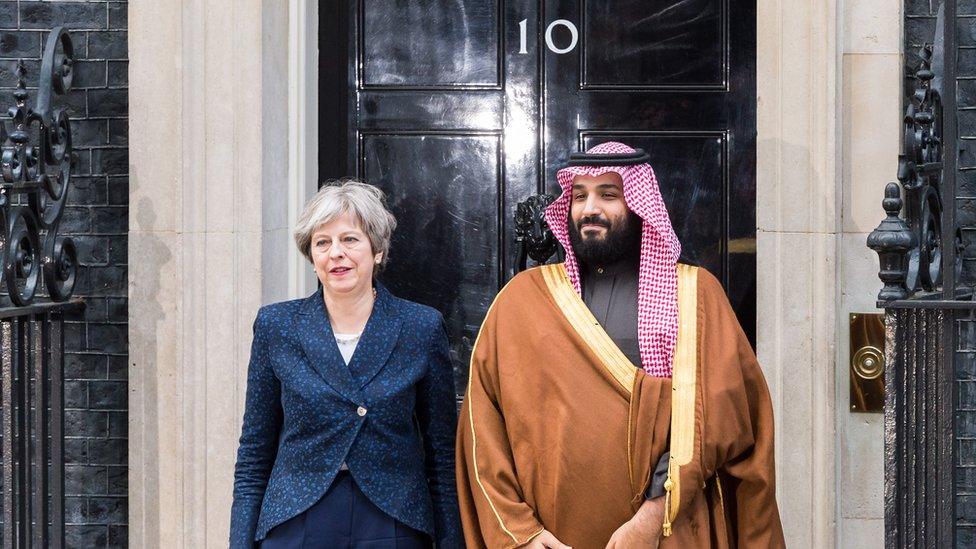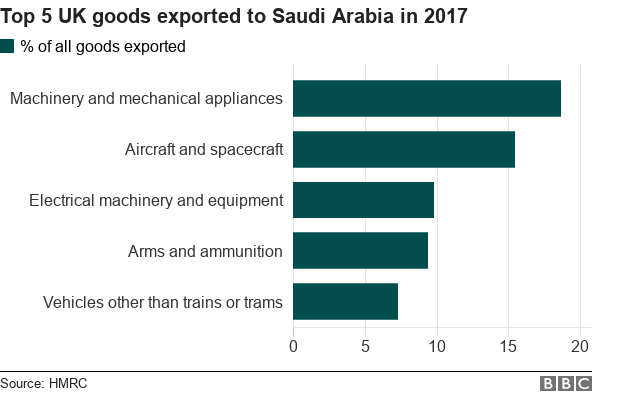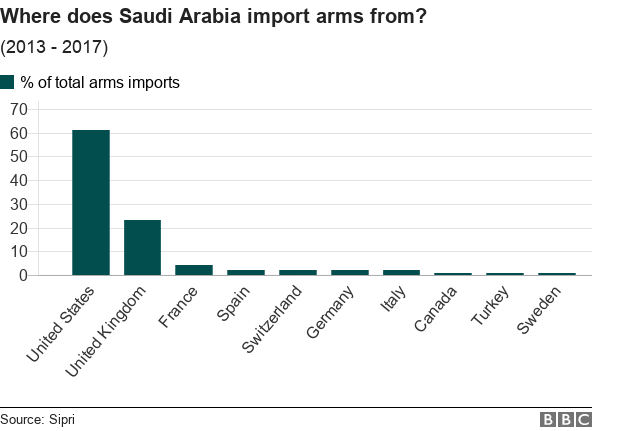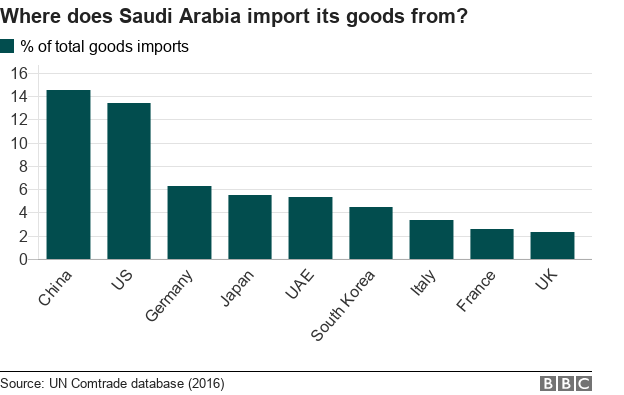Reality Check: What business does the UK do with Saudi Arabia?
- Published

Saudi Arabia's Crown Prince Mohammed bin Salman met Theresa May in March this year.
The disappearance of the Saudi Arabian journalist Jamal Khashoggi has raised the possibility of sanctions.
US President Donald Trump threatened "severe punishment" if Saudi Arabia is found responsible.
There has been widespread speculation about what has happened to Mr Khashoggi. Turkish officials believe he may have been murdered when he visited the Saudi consulate in Istanbul. Saudi Arabia denies the allegation and says it would respond to any sanctions.
So what's at stake?
Total goods exports from the UK to Saudi Arabia in 2017 were worth about £4.2 billion, an increase of 120% compared with ten years earlier. Goods imports from Saudi Arabia were worth £2.4 billion (also more than double the figure for ten years earlier). So the UK had a surplus of £1.8 billion in goods trade.
The top UK export categories were various types of machinery, aircraft, arms and vehicles, including £280 million of cars.
Oil accounted for more than half of the imports from Saudi Arabia, including crude and refined products. Other goods included machinery and electrical equipment, and photographic, cinematographic and medical equipment.
Although the UK produces crude oil from the North Sea and to a limited extent on land as well, it's more than a decade since the UK was self-sufficient. Saudi Arabia accounted for about 3% of British oil imports last year.

The UK's dependence on Saudi Arabia for oil is significant, but it's worth remembering that any sanctions action which disrupted Saudi Arabia's place in the global market would lead to all oil - wherever it is from - becoming more expensive, probably by a large amount.
UK exports of services to Saudi Arabia in 2017 were £2 billion. Imports of services were worth about a quarter of that amount. The UK had a surplus of about £1.5 billion in services.
Travel services were the biggest category of trade in both directions. For UK exports, financial services came in second.
The arms trade
There has been public debate about the supply of weapons to Saudi Arabia, particularly in light of the Saudi involvement in the conflict in Yemen.
Research by the Stockholm International Peace Research Institute, a think tank which monitors the global weapons industry, puts Britain in second place, external as a supplier of "major arms" to Saudi Arabia, behind the United States and ahead of France.
Saudi Arabia's total imports of major arms more than tripled in the period to 2012-2017 compared with the previous five years.

Global trade
Saudi Arabia's biggest single supplier of imports is China, followed closely by the United States. The UK comes in ninth. The main types of goods include machinery, vehicles and medicines.
Its exports are dominated by oil and gas, including the products of its refineries (such as diesel, petrol, jet fuel and raw materials for the petrochemical industry).

Two-thirds of crude oil exports went to Asia in 2016. Out of the refined products, 45% of exports went to Asia, with 40% going to Europe. Saudi Arabia is the second largest foreign supplier to the United States, external of oil, after Canada.
The overall trade balance varies widely due to the dominance of oil in Saudi exports. This year the IMF projects, external a surplus in what is called the current account (which is trade in goods and services and some financial transactions) of $65 billion or 8.4% of annual economic activity or GDP. The equivalent figures for 2015 (when the oil price was falling) were a deficit of $56.7 billion or 8.7% of GDP.



- Published15 October 2018

- Published24 February 2021
